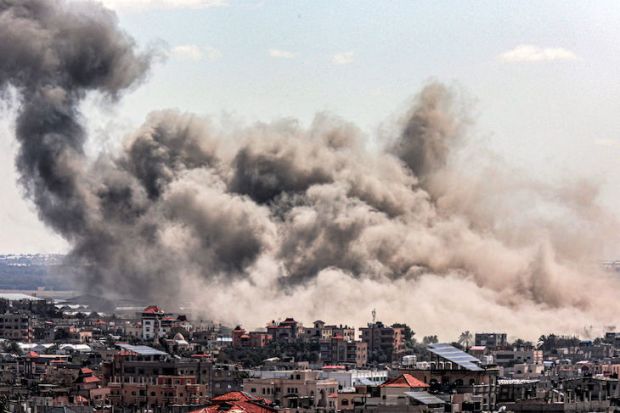Visit certain parts of the West Bank and you’ll encounter mansions owned by senior officials in the Palestinian Authority (PA). By any standards – let alone those to which ordinary citizens are accustomed – they are impressive, with arches, colonnades and tall windows. If you’d been watching them in recent weeks, you might have seen vaccines being quietly delivered to these residences in unmarked cars, having been skimmed off the supply intended for medical workers.
Those, at least, were the allegations made by a number of Palestinian human rights and civil society groups. Last week, the Palestinian health ministry was forced to come clean. In a statement, the ministry admitted that 10 per cent of the 12,000 doses it had received had been put aside for government ministers and members of the PLO’s executive committee.
The rest, it claimed, had been given to workers treating Covid patients and employees of the health ministry. Aside from the 200 doses that were sent to the Jordanian royal court, that is. And those reserved for presidential guards. And those that had been given to the Palestinian national football team.
None of this should come as a surprise. One of the many sufferings that afflicts the residents of the West Bank, not to mention Gaza, is the corruption of their rulers.
Mahmoud Abbas is currently 16 years into a four-year term. New elections were promised as a gesture for the new American President, but few observers believe they will actually take place. The administration has been mainlining international aid dollars for years while continuing to funnel cash to reward convicted terrorists, with the worst crimes attracting the most wealth – a story that I first covered in 2014 and that continues unchecked, despite widespread outrage.
According to AMAN, a Palestinian anti-corruption body linked to Transparency International, almost 70 per cent of Palestinians believe that their government institutions are corrupt. An EU report foundthat embezzlement had led to a loss of £1.7 billion of aid money between 2008 and 2012 alone. Huge sums are spent on fake companies and projects, including – in 2017 – a non-existent airline.
Government jobs, prized due to the weakness of the economy, are dished out through cronyism rather than fair competition. Well-connected people are able to avoid paying taxes on things like imported cars. And the security services have traditionally been saturated with high-ranking officers drawing fat salaries while commanding tiny numbers of ordinary soldiers.
It is true that the PA faces unique challenges. It does not have access to the full levers of statehood, it is dogged by factional dissent, it relies heavily on Israel and it must cope with harsh military restrictions. The Palestinian economy was devastated by the Second Intifada, which heralded years of violence and destruction, and the division between Gaza and the West Bank exacerbated this decline. But to place too much store by these extenuating factors is to subject the Palestinians to the bigotry of low expectations. Whichever way you cut it, the lack of stable and accountable governance from the PA has been a big part of the problem.
The row surrounding Israel’s vaccine miracle threw Western liberal preconceptions into sharp relief. And with Israel cast as the bogeyman and the Palestinians as the victims, conclusions inevitably came before the facts. The Israeli-Palestinian conflict has become one of the principal markers of political identity on the left, and this does not lend itself to the sort of sober analysis that may contribute towards a resolution.
On a day-to-day level, the Palestinians suffer as much from the incompetency of those who presume to govern them as from the actions of the Israeli state. Perhaps more so. It is certain that if there was a fully independent judiciary, the universal rule of law, a culture of transparency and proper fiscal management – not to mention a wholehearted engagement with the peace process – life for ordinary citizens would be immeasurably improved.
From a Western point of view, the lesson of the vaccine debacle is clear. It’s high time for those on the Left to stop using the conflict to burnish their own political credentials and consider the real roots of the problem.
Got something to add? Join the discussion and comment below.
Get 10 issues for just $10
Subscribe to The Spectator Australia today for the next 10 magazine issues, plus full online access, for just $10.




















Comments
Don't miss out
Join the conversation with other Spectator Australia readers. Subscribe to leave a comment.
SUBSCRIBEAlready a subscriber? Log in